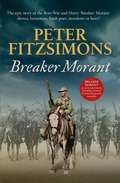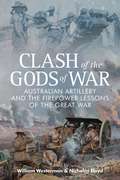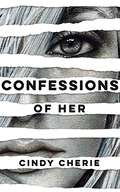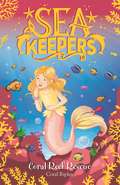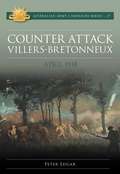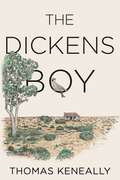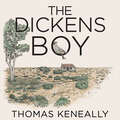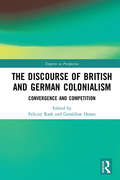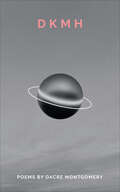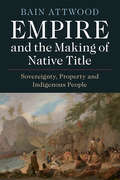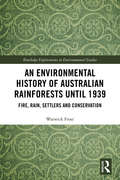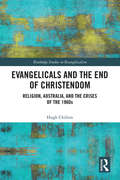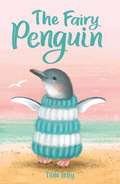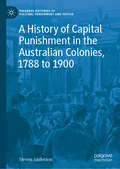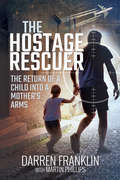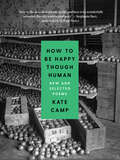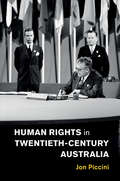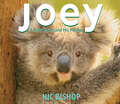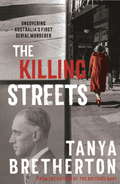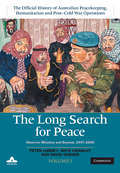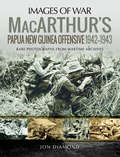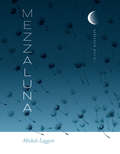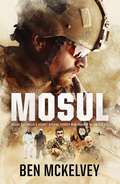- Table View
- List View
Breaker Morant: The epic story of the Boer War and Harry 'Breaker' Morant: drover, horseman, bush poet, murderer or hero?
by Peter FitzSimonsThe epic story of the Boer War and Harry 'Breaker' Morant: drover, horseman, bush poet - murderer or hero?Most people have heard of the Boer War and of Harry 'Breaker' Morant, a figure who rivals Ned Kelly as an archetypal Australian folk hero. But Morant was a complicated man. Born in England and immigrating to Queensland in 1883, he established a reputation as a rider, polo player and poet who submitted ballads to The Bulletin and counted Banjo Paterson as a friend. Travelling on his wits and the goodwill of others, Morant was quick to act when appeals were made for horsemen to serve in the war in South Africa. He joined up, first with the South Australian Mounted Rifles and then with a South African irregular unit, the Bushveldt Carbineers.The adventure would not go as Breaker planned. In October 1901 Lieutenant Harry Morant and two other Australians, Lieutenants Peter Handcock and George Witton, were arrested for the murder of Boer prisoners. Morant and Handcock were court-martialled and executed in February 1902 as the Boer War was in its closing stages, but the debate over their convictions continues to this day.With his masterful command of story, Peter FitzSimons takes us to the harsh landscape of southern Africa and into the bloody action of war against an unpredictable force using modern commando tactics. The truths FitzSimons uncovers about 'the Breaker' and the part he played in the Boer War are astonishing - and finally we will know if the Breaker was a hero, a cad, a scapegoat or a criminal.
Clash of the Gods of War: Australian Artillery and the Firepower Lessons of the Great War
by William Westerman Nicholas FloydThe Great War confronted Australia’s fledgling field and garrison artillery forces with a seemingly insurmountable challenge: to rapidly raise, prepare, deploy and engage in history’s most lethal war to date. By 1915, the Australian artillery entered into a bloody contest of learning and adaptation against resourceful and resolute opponents, where the stakes would be measured in thousands of soldiers’ lives. Far from popularly-held views of the Great War as one of stalemate and stagnation, Clash of the Gods of War: Australian Artillery and the Firepower Lessons of the Great War reveals a dynamic and rapidly evolving battle-scape, as artillery planners on each side sought to combine innovative concepts, technology and tactics into victory. The book draws on an unparalleled array of perspectives on artillery and firepower, presented by Australian and international experts and practitioners over four years during the Firepower: Lessons from the Great War seminar series, commemorating the Centenary of Anzac. From Anzac Cove to the Hindenburg Line, Clash of the Gods of War tells a gripping Australian story of the Great War through the lens of artillery – the most lethal and influential arm of the war – and considers the legacy that its evolutionary journey holds for warfare today.
Confessions of Her
by Cindy CherieConfessions of Her is a tale of survival depicting how one young woman found love in herself, rather than searching for it in the arms of another. This autobiographical collection of poetry and prose takes the reader on a journey of love and loss, depicting how she overcame heartbreak to ultimately, save herself.Fans of Confessions of Her are saying "beautiful words from a beautiful woman", "emotionally charged" and "goosebumps for all!"
Coral Reef Rescue: Book 3 (Sea Keepers #3)
by Coral RipleyThe show must go on! The Sea Keepers head Down Under for a tropical talent show in this magical new series about saving our oceans.The Sea Keepers are off to Australia to help the Oceania mermaids! Divers are threatening their beautiful coral reef and evil siren Effluvia has enchanted a dangerous shark to spoil the mermaids' tropical talent show. Now all the fish who live there are in danger! Can Emily, Grace and Layla find a magical pearl to save the show and protect the reef without becoming a shark's snack?
Counter Attack Villers-Bretonneux: April 1918 (Australian Army Campaigns #27)
by Peter EdgarThe brutal 1914 German invasion of Belgium and France had gained a large portion of both countries. Over three-and-a-half punishing years the Allies were slowly pushing the Germans back but in March 1918, Germany launched a massive spring offensive. Resting in the Ypres sector after the horrors of the Passchendaele campaign, the Australians were among the first sent south to try to block the enemy. Now, after an unprecedented fortnight of advance, Germany’s goal was to capture the town of Villers-Bretonneux, key to the major rail junction of Amiens. The first attempt on 4 April found the 9th Australian Infantry Brigade in the centre of the line. They stopped the enemy at the gates. Then on 24 April the Germans launched a new attack, led by tanks, and took the town. Standing by to counter-attack were the 15th and 13th brigades of the Australian Corps. Not everything went to plan and casualties were high, but the counter-attack was brilliantly executed in spite of the odds. It became ‘a soldier’s fight’ in which the Australian troops’ morale and eagerness to get to grips with the enemy, together with their aggressive, well-practised moves under fire triumphed. Counter Attack: Villers-Bretonneux – April 1918 details the pivotal role the Australians played in denying German victory. Villers-Bretonneux was never again threatened by the enemy.
The Dickens Boy
by Thomas KeneallyBy the author of Schindler's Ark and master storyteller, Thomas Keneally, a vibrant novel about Charles Dickens' son and his adventures in the Australian Outback.In 1868, Charles Dickens dispatches his youngest child to Australia. Like his brother Alfred before him, sixteen-year-old Edward is expected to learn to apply himself in what his father considers to be the new land of opportunity. Posted to a remote sheep station in New South Wales, Edward discovers that Charles Dickens' fame has reached even there, as has the gossip about his father's scandalous liaison with an actress. Amid colonists, ex-convicts, local tribespeople and a handful of eligible young women, Edward strives to be his own man - and keep secret the fact that he's read none of his father's novels.Conjuring up a life of sheep-droving, horse-racing and cricket tournaments in a community riven with tensions and prejudice, the story of Edward's adventures also affords an intimate portrait of Dickens' himself. This vivacious novel is classic Keneally: historical figures and events re-imagined with verve, humour and compassion.
The Dickens Boy
by Thomas KeneallyIn 1868, Charles Dickens dispatches his youngest child to Australia. Like his brother Alfred before him, sixteen-year-old Edward is expected to learn to apply himself in what his father considers to be the new land of opportunity. Posted to a remote sheep station in New South Wales, Edward discovers that Charles Dickens' fame has reached even there, as has the gossip about his father's scandalous liaison with an actress. Amid colonists, ex-convicts, local tribespeople and a handful of eligible young women, Edward strives to be his own man - and keep secret the fact that he's read none of his father's novels.Conjuring up a life of sheep-droving, horse-racing and cricket tournaments in a community riven with tensions and prejudice, the story of Edward's adventures also affords an intimate portrait of Dickens' himself. This vivacious novel is classic Keneally: historical figures and events re-imagined with verve, humour and compassion.(P)2020 Penguin Random House Australia Ltd
The Discourse of British and German Colonialism: Convergence and Competition (Empires in Perspective)
by Felicity RashThis volume compares and contrasts British and German colonialist discourses from a variety of angles: philosophical, political, social, economic, legal, and discourse-linguistic. British and German cooperation and competition are presented as complementary forces in the European colonial project from as early as the sixteenth century but especially after the foundation of the German Second Empire in 1871 – the era of the so-called 'Scramble for Africa'. The authors present the points of view not only of the colonizing nations, but also of former colonies, including Cameroon, Ghana, Morocco, Namibia, Tanzania, India, China, and the Pacific Islands. The title will prove invaluable for students and researchers working on British colonial history, German colonial history and post-colonial studies.
DKMH: Poems
by Dacre MontgomeryAudiobook publishing simultaneously!Since its release as a small mixed-media podcast, DKMH has topped charts all over the internet. Written and produced by Stranger Things star Dacre Montgomery, the DKMH platform is expanding to print. This exciting debut collection of poetry and prose is an analysis of ego, love, anger, and anxiety. Each poem investigates our individual driving forces and how experiences shape us into the humans we are, deeply personal yet strangely familiar and universal. Consumable on a variety of platforms, DKMH is a constant battle between themes that explore the biggest life questions: who are we, why are we, and what drives us?
Empire and the Making of Native Title: Sovereignty, Property and Indigenous People
by Bain AttwoodThis book provides a new approach to the historic treatment of indigenous peoples' sovereignty and property rights in Australia and New Zealand. By shifting attention from the original European claims of possession to a comparison of the ways in which British players treated these matters later, Bain Attwood not only reveals some startling similarities between the Australian and New Zealand cases but revises the long-held explanations of the differences. He argues that the treatment of the sovereignty and property rights of First Nations was seldom determined by the workings of moral principle, legal doctrine, political thought or government policy. Instead, it was the highly particular historical circumstances in which the first encounters between natives and Europeans occurred and colonisation began that largely dictated whether treaties of cession were negotiated, just as a bitter political struggle determined the significance of the Treaty of Waitangi and ensured that native title was made in New Zealand.
An Environmental History of Australian Rainforests until 1939: Fire, Rain, Settlers and Conservation (Routledge Explorations in Environmental Studies)
by Warwick FrostThis book provides a comprehensive environmental history of how Australia’s rainforests developed, the influence of Aborigines and pioneers, farmers and loggers, and of efforts to protect rainforests, to help us better understand current issues and debates surrounding their conservation and use. While interest in rainforests and the movement for their conservation are often mistakenly portrayed as features of the last few decades, the debate over human usage of rainforests stretches well back into the nineteenth century. In the modern world, rainforests are generally considered the most attractive of the ecosystems, being seen as lush, vibrant, immense, mysterious, spiritual and romantic. Rainforests hold a special place; both providing a direct link to Gondwanaland and the dinosaurs and today being the home of endangered species and highly rich in biodiversity. They are also a critical part of Australia’s heritage. Indeed, large areas of Australian rainforests are now covered by World Heritage Listing. However, they also represent a dissonant heritage. What exactly constitutes rainforest, how it should be managed and used, and how much should be protected are all issues which remain hotly contested. Debates around rainforests are particularly dominated by the contradiction of competing views and uses – seeing rainforests either as untapped resources for agriculture and forestry versus valuing and preserving them as attractive and sublime natural wonders. Australia fits into this global story as a prime example but is also of interest for its aspects that are exceptional, including the intensity of clearing at certain periods and for its place in the early development of national parks. This book will be of great interest to students and scholars of Environmental History, Australian History and Comparative History.
Evangelicals and the End of Christendom: Religion, Australia and the Crises of the 1960s (Routledge Studies in Evangelicalism)
by Hugh ChiltonExploring the response of evangelicals to the collapse of ‘Greater Christian Britain’ in Australia in the long 1960s, this book provides a new religious perspective to the end of empire and a fresh national perspective to the end of Christendom. In the turbulent 1960s, two foundations of the Western world rapidly and unexpectedly collapsed. ‘Christendom’, marked by the dominance of discursive Christianity in public culture, and ‘Greater Britain’, the powerful sentimental and strategic union of Britain and its settler societies, disappeared from the collective mental map with startling speed. To illuminate these contemporaneous global shifts, this book takes as a case study the response of Australian evangelical Christian leaders to the cultural and religious crises encountered between 1959 and 1979. Far from being a narrow national study, this book places its case studies in the context of the latest North American and European scholarship on secularisation, imperialism and evangelicalism. Drawing on a wide range of archival sources, it examines critical figures such as Billy Graham, Fred Nile and Hans Mol, as well as issues of empire, counter-cultural movements and racial and national identity. This study will be of particular interest to any scholar of Evangelicalism in the twentieth century. It will also be a useful resource for academics looking into the wider impacts of the decline of Christianity and the British Empire in Western civilisation.
The Fairy Penguin: Book 1 (Baby Animal Friends #1)
by Tilda KellyCan a fairy penguin make a little girl's Christmas wish come true? A warm and fuzzy animal story that's perfect for sharing. A lonely girl named Millie, who has recently moved to Australia, rescues an orphaned baby fairy penguin on Christmas Eve. Millie takes the penguin - the victim of an oil spill - home and names her Tink. Caring for Tink helps Millie grieve the loss of her mum. And when she organises a knit-a-thon to make tiny woolly jumpers for Tink and other injured fairy penguins, her wish to make new friends begins to come true . . . The first in a new series of classic, heartwarming animal stories by Tilda Kelly.
A History of Capital Punishment in the Australian Colonies, 1788 to 1900 (Palgrave Histories of Policing, Punishment and Justice)
by Steven AndersonThis book provides a comprehensive overview of capital punishment in the Australian colonies for the very first time. The author illuminates all aspects of the penalty, from shortcomings in execution technique, to the behaviour of the dying criminal, and the antics of the scaffold crowd. Mercy rates, execution numbers, and capital crimes are explored alongside the transition from public to private executions and the push to abolish the death penalty completely. Notions of culture and communication freely pollinate within a conceptual framework of penal change that explains the many transformations the death penalty underwent. A vast array of sources are assembled into one compelling argument that shows how the ‘lesson’ of the gallows was to be safeguarded, refined, and improved at all costs. This concise and engaging work will be a lasting resource for students, scholars, and general readers who want an in-depth understanding of a long feared punishment.Dr. Steven Anderson is a Visiting Research Fellow in the History Department at The University of Adelaide, Australia. His academic research explores the role of capital punishment in the Australian colonies by situating developments in these jurisdictions within global contexts and conceptual debates.
The Hostage Rescuer: The Return of a Child into a Mother's Arms
by Darren Franklin Martin PhillipsThe gripping true crime story of a child abducted by his father from his mother, and the international race to rescue him against dangerous odds.Two close encounters with death convince Darren Franklin that his career in global private security is not the healthiest. Meanwhile Scottish nurse Diane is on a life-changing journey of her own after a Shirley Valentine-style romance on a Greek holiday island. As she moves to Australia to marry her Greek lover and start a family, Darren escapes a contract on his life and teams up with a former British special forces operative to get into the business of rescuing abducted children. Then Darren’s and Diane’s paths cross. After Diane’s marriage breaks down, her ex takes their four-year-old son Theo back to the Greek islands, and, when all attempts to get her son back via the courts have failed, Darren’s company is called in to get him back. As Diane waits anxiously in the wings, Darren and his small team must contend with hostile locals, double-crossing police, and dubious legal contacts to conduct surveillance on their target, formulate a plan, and grab the boy before making their hazardous escape. They can trust no one. A whole island community is against them, they have their suspicions about their own lawyer, and the charity go-between on their team is actively leaking details of their plans, risking their mission, and possibly their lives. Set against an epidemic of parental abductions, and a background of frequent failed recoveries, the action swings from Britain to South America to Australia, to the USA and the Greek Islands on a dramatic, emotional roller coaster from start to finish.
The Hostage Rescuer: The Return of a Child into a Mother's Arms
by Darren Franklin Martin PhillipsThe gripping true crime story of a child abducted by his father from his mother, and the international race to rescue him against dangerous odds.Two close encounters with death convince Darren Franklin that his career in global private security is not the healthiest. Meanwhile Scottish nurse Diane is on a life-changing journey of her own after a Shirley Valentine-style romance on a Greek holiday island. As she moves to Australia to marry her Greek lover and start a family, Darren escapes a contract on his life and teams up with a former British special forces operative to get into the business of rescuing abducted children. Then Darren’s and Diane’s paths cross. After Diane’s marriage breaks down, her ex takes their four-year-old son Theo back to the Greek islands, and, when all attempts to get her son back via the courts have failed, Darren’s company is called in to get him back. As Diane waits anxiously in the wings, Darren and his small team must contend with hostile locals, double-crossing police, and dubious legal contacts to conduct surveillance on their target, formulate a plan, and grab the boy before making their hazardous escape. They can trust no one. A whole island community is against them, they have their suspicions about their own lawyer, and the charity go-between on their team is actively leaking details of their plans, risking their mission, and possibly their lives. Set against an epidemic of parental abductions, and a background of frequent failed recoveries, the action swings from Britain to South America to Australia, to the USA and the Greek Islands on a dramatic, emotional roller coaster from start to finish.
How to Be Happy Though Human: New and Selected Poems
by Kate CampA timely collection of new and previously published work by one of New Zealand’s most acclaimed poets, How to Be Happy Though Human introduces Kate Camp’s eclectic and musical poetry to international audiences for the first time.How to Be Happy Though Human: New and Selected Poems is Kate Camp’s seventh book of poetry and the first to be published outside New Zealand. Incorporating a grouping of new, previously unpublished work and a selection of important poems from her six earlier collections, this volume introduces North American readers to poetry that has been described by critics as “fearless,” “mesmerizing,” and “containing a surprising radicalism and power.”Camp’s work is recognized for its wide-ranging and eclectic subject matter, its technical control, and its musicality, with pop culture, high culture, the domestic confessional, close observation, and found language featured as recurring elements of style.A timely retrospective that represents a new chapter in Camp’s career, How to Be Happy Though Human promises to gain a wide readership for this thoughtful, engaging, and popular writer.
Human Rights in Twentieth-Century Australia (Human Rights in History)
by Jon PicciniThis groundbreaking study understands the 'long history' of human rights in Australia from the moment of their supposed invention in the 1940s to official incorporation into the Australian government bureaucracy in the 1980s. To do so, a wide cast of individuals, institutions and publics from across the political spectrum are surveyed, who translated global ideas into local settings and made meaning of a foreign discourse to suit local concerns and predilections. These individuals created new organisations to spread the message of human rights or found older institutions amenable to their newfound concerns, adopting rights language with a mixture of enthusiasm and opportunism. Governments, on the other hand, engaged with or ignored human rights as its shifting meanings, international currency and domestic reception ebbed and flowed. Finally, individuals understood and (re)translated human rights ideas throughout this period: writing letters, books or poems and sympathising in new, global ways.
Joey: A Baby Koala and His Mother
by Nic BishopIt's an exciting morning for Joey the baby koala in this beautifully photographed book from award-winning author Nic Bishop.High above the ground, in the shade of a eucalyptus tree, Joey the baby koala wakes up hungry! Crawling over his sleeping mom, Joey goes exploring... only to find that his mother's arms is where he's supposed to be after all.In this book featuring simple text and stunning photographs of a rare interaction between a koala and her little one, award-winning author-photographer Nic Bishop brings nature to life for the youngest children. Perfect for laptime reading, this visual treat in the style of Bishop's acclaimed Red-Eyed Tree Frog includes fun facts about koalas and their habitat.
The Killing Streets: Uncovering Australia's first serial murderer
by Tanya Bretherton**WINNER OF THE 2020 DANGER PRIZE**From the acclaimed author of THE SUITCASE BABY and THE SUICIDE BRIDE, the fascinating story of a series of horrific murders that began in 1930s Sydney - and a killer who remained at large for over two decades.In December 1932, as the Depression tightened its grip, the body of a woman was found in Queens Park, Sydney. It was a popular park. There were houses in plain view. Yet this woman had been violently murdered without anyone noticing. Other equally brutal and shocking murders of women in public places were to follow. Australia's first serial killer was at large.Police failed to notice the similarities between the victims until the death of one young woman - an aspiring Olympic swimmer - made the whole city take notice. On scant evidence, the unassuming Eric Craig was arrested. But the killings didn't stop... A compelling story of a city crippled by fear and what happens when victims are blamed and suspects are presumed guilty, The Killing Streetsinvestigates how a murderer could remain free to kill again.**Includes a BONUS extract from Tanya Bretherton's compelling new book THE HUSBAND POISONER**
The Long Search for Peace: Observer Missions and Beyond, 1947–2006
by Peter Londey Rhys Crawley David HornerVolume I of the Official History of Australian Peacekeeping, Humanitarian and Post-Cold War Operations recounts the Australian peacekeeping missions that began between 1947 and 1982, and follows them through to 2006, which is the end point of this series. The operations described in The Long Search for Peace - some long, some short; some successful, some not - represent a long period of learning and experimentation, and were a necessary apprenticeship for all that was to follow. Australia contributed peacekeepers to all major decolonisation efforts: for thirty-five years in Kashmir, fifty-three years in Cyprus, and (as of writing) sixty-one years in the Middle East, as well as shorter deployments in Indonesia, Korea and Rhodesia. This volume also describes some smaller-scale Australian missions in the Congo, West New Guinea, Yemen, Uganda and Lebanon. It brings to life Australia's long-term contribution not only to these operations but also to the very idea of peacekeeping.
MacArthur's Papua New Guinea Offensive, 1942–1943 (Images of War)
by Jon Diamond Dr.&“A compelling chronicle of the Battle of Papua New Guinea with rarely viewed images from World War II . . . an excellent book.&” —Naval Historical Foundation The Japanese seizure of Rabaul on New Britain in January 1942 directly threatened Northern Australia and, as a result, General Douglas MacArthur took command of the Southwest Pacific Area. In July 1942, the Japanese attacked south across the Owen Stanley mountain range. Thanks to the hasty deployment of Australian militiamen and veteran Imperial Force troops the Japanese were halted at Ioribaiwa Ridge just 27 miles from Port Moresby. MacArthur&’s priority was to regain Northeast New Guinea and New Britain. The capture of airfields at Buna and reoccupation of Gona and Sanananda Point were prerequisites. The Allied offensive opened on 16 November 1942 with Australian infantrymen and light tanks alongside the US 32nd Infantry Division. Overcoming the Japanese and the inhospitable terrain in tropical conditions proved the toughest of challenges. It remains an achievement of the highest order that the campaign ended successfully on 22 January 1943. This account with its clear text and superb imagery is a worthy tribute to those who fought and, all too often, died there.&“Covers a seriously neglected key campaign of WWII. Most Highly Recommended.&” —Firetrench&“A fascinating look at real jungle warfare and the images only accentuate how miserable troops must have been during the fighting.&” —ModelingMadness.com
Mezzaluna: Selected Poems (Wesleyan Poetry Series)
by Michele LeggottMezzaluna gathers work from Michele Leggott's nine books of poetry. As reviewer David Eggleton writes: "Leggott shows us that the ordinary is full of marvels which... stitched, flow together into sequences and episodes that in turn form an ongoing serial, or bricolage: a single poem, then, rejecting exactness, literalism, naturalism in favor of resonance, currents, patterns of ebb and flow." In complex lyrics, sampling thought and song, voice and vision, Leggott creates lush textured soundscapes. Her poetry covers a wide range of topics rich in details of her New Zealand life, full of history and family, lights and mirrors, the real and the surreal. She focuses on appearance and disappearance as modes of memory, familial until we lose sight of that horizon line and must settle instead for a series of intersecting arcs. Leggott writes with tenderness and courage about the paradoxes of losing her sight and remaking the world in words.on white you fallinto lineher voice fillsthe groundpotato cuts the sundries paints the deck printsshapes shadows of oranges green 'cyan and magenta' sail your picnicsea into the eye land crimson lemons hand methe moonrisen rode rose ridewhite out to see
Mosul: Australia's secret war inside the ISIS caliphate
by Ben MckelveyFrom the best-selling author of The Commando and Born to Fight comes a fascinating investigation of modern warfare that combines methodical research and the fast-paced action of battle with the personal stories of the combatants on both sides of the line.Taking us from the suburbs of western Sydney and Australia's military army bases, to the battlefields of Afghanistan and Iraq, this is a remarkable book that reveals the as-yet untold story of the battle for Mosul and the secret involvement of Australians on both sides of the war - both our Commandos and Australian ISIS fighters.Mosul details the rise of ISIS influence in Australia, the Iran and Australia allegiance to fight Daesh and shows what led up to the battle and the ramifications that are still being felt at home - by our soldiers and the victims of that war.Ben Mckelvey has extraordinary access to SOOCOMD/2COMMANDO units - the most decorated modern Australian fighting unit; ISOF - Iraq's premier fighters; Yazidis women who had been slaves of ISIS; returned Commandos and their devastated families, and explains how petty criminals in Western Sydney became some of our worst jihadists who took their families to Iraq to fight for ISIS. Focusing on the stories of key figures like 2 Commando's Ian Turner and one of Australia's most infamous Jihadist, Khaled Sharrouf, Mckelvey takes us the heart of this brutal battle and brings history to life in an honest, thoughtful and compelling examination of modern warfare.A must-read for anyone interested in modern military history.
Mosul: Australia's secret war inside the ISIS caliphate
by Ben MckelveyFrom the best-selling author of The Commando and Born to Fight comes a fascinating investigation of modern warfare that combines methodical research and the fast-paced action of battle with the personal stories of the combatants on both sides of the line.Taking us from the suburbs of western Sydney and Australia's military army bases, to the battlefields of Afghanistan and Iraq, this is a remarkable book that reveals the as-yet untold story of the battle for Mosul and the secret involvement of Australians on both sides of the war - both our Commandos and Australian ISIS fighters.Mosul details the rise of ISIS influence in Australia, the Iran and Australia allegiance to fight Daesh and shows what led up to the battle and the ramifications that are still being felt at home - by our soldiers and the victims of that war.Ben Mckelvey has extraordinary access to SOOCOMD/2COMMANDO units - the most decorated modern Australian fighting unit; ISOF - Iraq's premier fighters; Yazidis women who had been slaves of ISIS; returned Commandos and their devastated families, and explains how petty criminals in Western Sydney became some of our worst jihadists who took their families to Iraq to fight for ISIS. Focusing on the stories of key figures like 2 Commando's Ian Turner and one of Australia's most infamous Jihadist, Khaled Sharrouf, Mckelvey takes us the heart of this brutal battle and brings history to life in an honest, thoughtful and compelling examination of modern warfare.A must-read for anyone interested in modern military history.
